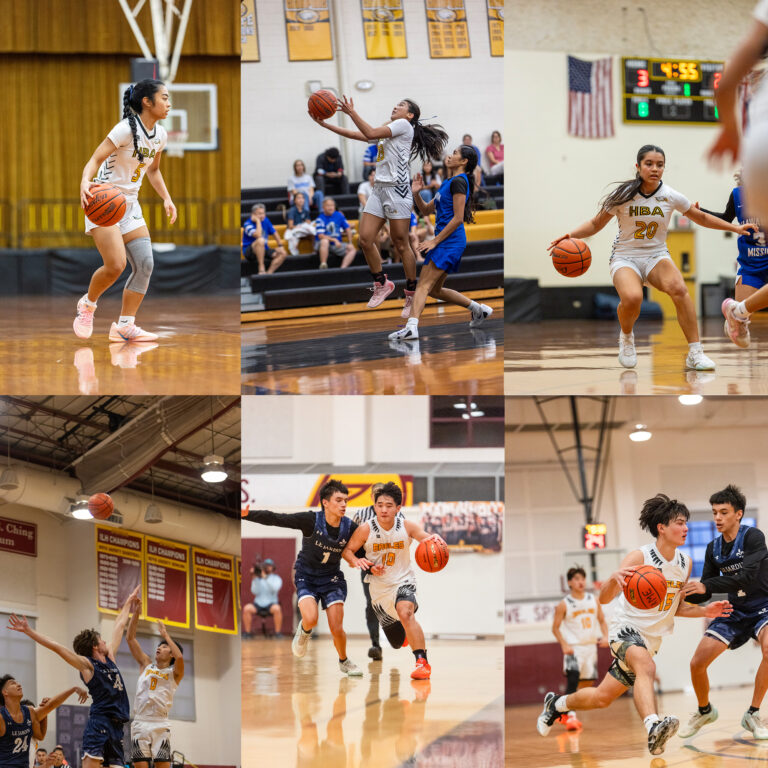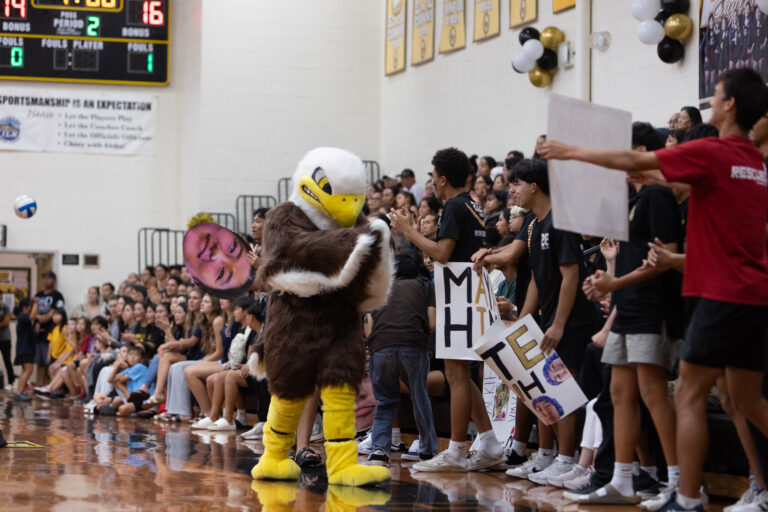The beginning of high school is when most students are encouraged to begin their search for college.
The problem most students face comes during the beginning of the search. Where should you start? There are many factors that should be addressed while exploring your options. Location, cost, prestige, size, and majors all play a big part in what makes a college suitable for different people. The Eagle Eye spoke to some HBA students and faculty to hear about their experience and to get some advice on choosing the right college.
Junior Paige Oshiro hasn’t started an extensive search for her college yet. She has yet to choose a college since she hasn’t decided on a major. When looking for the right college Paige said, “I want a strong academic program, but location is also a factor. I love trees and mountains; if I went to school somewhere geographically flat and devoid of greenery, I think I would be completely homesick.” As for advice to anyone else who hasn’t picked their college, Paige recommended asking questions and doing research. By researching, students can find out prerequisites for colleges that they are interested in and can plan accordingly.
“Choose the college that is best for you, not for your parents, and not for anyone other than yourself.”
Science department chair Mike Hu
Senior Tanner Isaacs plans to attend the University of Hawaii at West Oahu. He cited parental pressure as the main determining factor for applying to UH. He had wanted to attend the more prestigious New York Film Academy, as it more closely fits his goal of working in the art field, but chose to stick to UH just as his family wanted him to. Isaacs had his reasons for going along with his family’s suggestion but advises to students that if possible, they should try to make their own decision.
Alumna Brianne Higa (’15) is currently attending the University of Hawaii at Manoa while pursuing a career in nursing. She cited several reasons for choosing UH, including the quality of the nursing program, cost effectiveness, and parental pressure. Higa suggests that students should “cast a wide net if they don’t know what to do” in order to keep their options open. She also pointed out that choosing a cheaper college allows for students to experience college life, and acts as a foundation should students choose to transfer to other colleges.
Science department chair and chemistry teacher Michael Hu shared that he originally saw UH as his only option based on affordability. However, he was accepted into the University of Chicago on a full scholarship with the help of his AP Calculus teacher. He pointed out that his case was an exception and that no students should apply to colleges by taking the first best option without careful consideration and that the main reason he went to Chicago was because “it was free, and that’s what sold me.” He added, “There’s a lot of information on the internet; do your due diligence. Look at schools, look at programs.” He suggested websites like cappex.com to do research into finding the right college. He recommends that students look at all the different aspects that make up colleges: gender, size, location, cost, whether you want to attend a four year college or a university to pursue graduate courses. Hu says that students should do the college search themselves, and that if they have the money they should tour the school and take a look. He believes that college education doesn’t always boil down to prestige; in the end it comes down to what you try to get out of it. Hu finished off by saying, “Choose the college that is best for you, not for your parents, and not for anyone other than yourself.”
“Asking for help is rarely a bad idea.”
Physics teacher Andrew Vitek
Physics teacher Andrew Vitek started college at UH Manoa but transferred after his sophomore year to Bethel University. In his case, faith and interests had a lot to do with his transfer. He cited his then newly formed Christian faith he had found during his time at UH and wanted to grow his faith while learning about the intricacies of God’s creation through physics. He also had a strong interest in NCAA hockey and wanted a college that could cater to all his interests. With the help of a friend Vitek found a few colleges that met all his qualifications, from there he simply picked the first college on the list which was Bethel University. He had no regrets about his transfer of how he found his college and recommends looking for the right college based on what you have interests in. Vitek said, “If I had to recommend anything, I would say a couple of things. First, no matter how crazy your desires, it’s possible to find a college that meets all or most of needs. And second, asking for help is rarely a bad idea.”
Counselor Danford Chang attended UH Manoa after experiencing college life through a camp at the University of Colorado. He used his experience to narrow his choice down from the several applications he had sent out. “I was definitely happy with the way I chose my college. I enjoyed staying home and staying involved with my church. It seemed like God’s will worked out, and I think that’s an important thing to follow.” Chang also advised that students “pray, find out what God’s will is.” He added, “A lot of times God’s will lines up with your desires, but a lot of times it doesn’t, so pray to see where God wants you to go. If God tells you to go away then finding a school that is a good fit for you, more than the prestige or where it’s located. Ask yourself if it is a place where you can grow not only academically and intellectually but also spiritually as well, those are some good things to keep in mind.”
Being a college counselor, Chang is well aware of the pressure parents put on their children to get into certain schools. “A good, healthy discussion with parents or counselors is really good,” he said, “and I think a lot of things that parents are pressuring their kids about are valid pressures. Discussing what those fears are and looking at the facts of that could go a long way to make this process a lot more fun and a lot less stressful.” Chang finished off by reminding students that they should start getting acquainted with colleges and what the application process entails.






